Why meditation is important for beginners
Do you find yourself constantly rushing from one task to another, feeling overwhelmed and stressed? If so, it’s time to unlock your inner peace and discover the transformative power of meditation. Whether you’re a beginner or have dabbled in meditation before, this article will guide you on a journey towards tranquility and mindfulness.
Imagine being able to quiet the noise of the outside world and find solace within yourself. Through simple techniques and practical tips, you’ll learn how to meditate for beginners today and cultivate a daily meditation practice that will bring harmony into every aspect of your life.
Are you tired of being caught in the chaotic whirlwind of modern living? In today’s fast-paced society, finding inner peace has become increasingly elusive. But fear not! This article is here to show you how meditation can be your ultimate escape from madness.
Let go of stress, anxiety, and worries as we take you on a step-by-step journey towards mastering the art of meditation for beginners. With just a few minutes each day dedicated to stillness and self-reflection, you’ll soon experience the profound effects that mindfulness can have on your mental well-being – leaving you refreshed, rejuvenated, and ready to conquer whatever life throws your way!
Diving Into the Stillness: Understanding Meditation
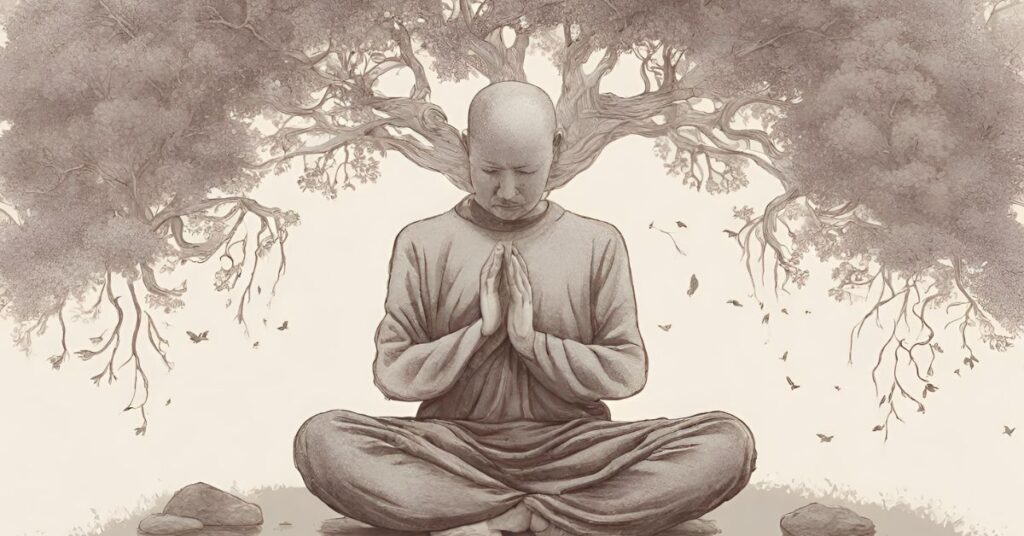
Meditation, with its roots reaching deep into ancient Eastern traditions, has journeyed through time, offering solace to those seeking inner peace. Think of it as a gentle whisper amidst the noise of daily life, guiding you to a tranquil space within your mind. While it might carry spiritual or religious connotations for some, meditation doesn’t play favorites; it welcomes everyone, irrespective of belief.
At the heart of meditation is a simple act: being present. Imagine it as sitting by a river, watching your thoughts flow by without trying to change their course. It’s about letting go, allowing yourself to be submerged in the here and now, free from judgment and the world’s clamor.
The world of meditation is as vast as the ocean, with myriad techniques each offering its unique path to stillness. A favorite among many is mindfulness meditation. It’s like taking a gentle stroll within, observing the rhythmic dance of your breath, the fleeting sensations on your skin, or the ebb and flow of thoughts, all without getting entangled.
So, if you’re seeking a serene anchor in the stormy seas of life, meditation might just be the beacon you’ve been searching for.
Benefits of meditation for beginners
- Reduced stress and anxiety
- Improved focus and concentration
- Increased self-awareness
- Enhanced emotional well-being
- Improved overall mental health
When starting a meditation practice as a beginner, it is important to find a quiet and comfortable space where you can sit or lie down without being disturbed. You can choose to close your eyes or keep them open with a soft gaze. Begin by taking a few deep breaths to relax your body and mind.
How to start meditating as a beginner
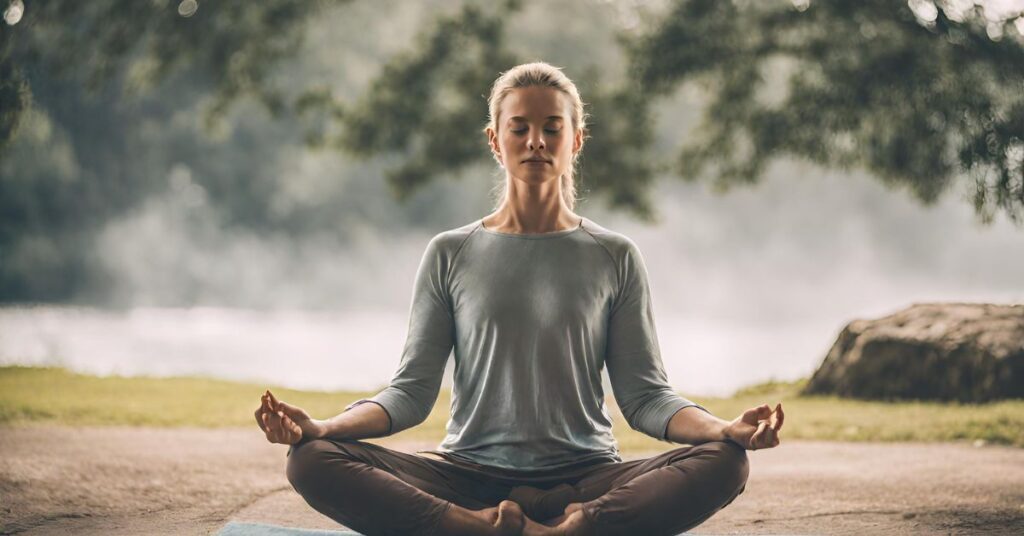
Techniques to meditate for beginners
There are several techniques you can try to start meditating as a beginner. One simple method is to focus on your breath. Take slow, deep breaths in and out, paying attention to the sensation of the air entering and leaving your body. If your mind wanders, gently bring it back to the present moment by refocusing on your breath.
Another technique is body scan meditation. Start by bringing awareness to different parts of your body, starting from head to toe or vice versa. Notice any sensations or tensions in each area and try to release them by consciously relaxing your muscles.
As you scan through your body, observe any thoughts or emotions that arise without judgment, simply acknowledging them and allowing them to pass. Another technique for beginners is guided meditation.
This involves listening to a recorded meditation script or following along with a meditation app or video. Guided meditations often provide instructions on how to relax, focus the mind, and cultivate specific qualities like gratitude or compassion.
Common challenges and how to overcome them
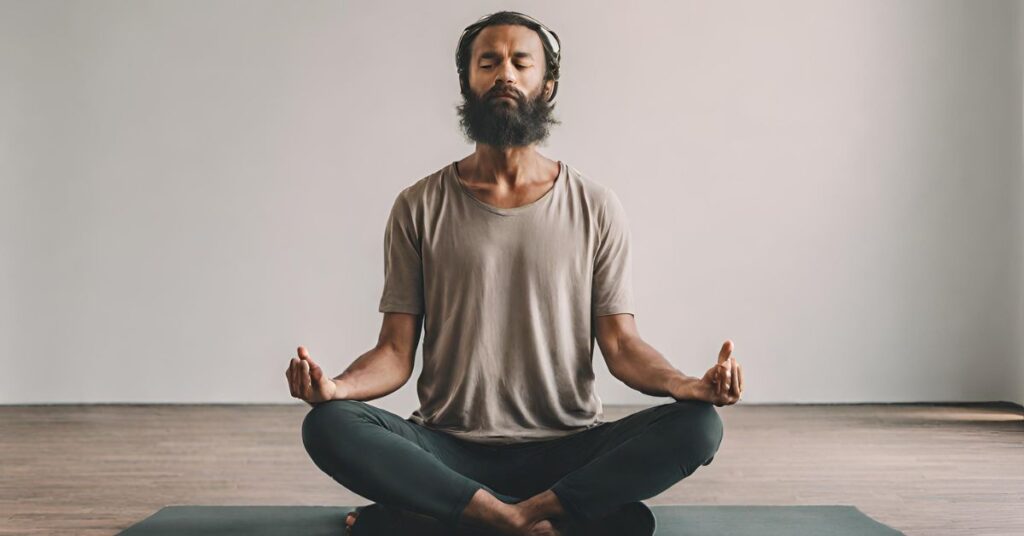
Finding it difficult to sit still for an extended period of time, becoming easily distracted by external stimuli or racing thoughts, and feeling impatient or frustrated with the practice. To overcome these challenges, it can be helpful to start with shorter meditation sessions and gradually increase the duration as your ability to focus improves.
Setting up a quiet and comfortable meditation space free from distractions can also aid in maintaining focus. Additionally, using tools such as a timer or a meditation app that provides reminders and gentle guidance can assist in staying on track during the practice. It can also be useful to experiment with different meditation techniques for beginnersmeditation techniques to find one that resonates with you and aligns with your specific needs and preferences.
Another strategy to overcome difficulties in meditation is to cultivate a mindset of non-judgment and self-compassion. Recognize that it’s normal for thoughts to arise during meditation, and instead of getting frustrated or feeling like you’ve failed, simply acknowledge the thought and gently bring your attention back to the present moment.
Cultivating the Habit: Nurturing Your Meditation Journey
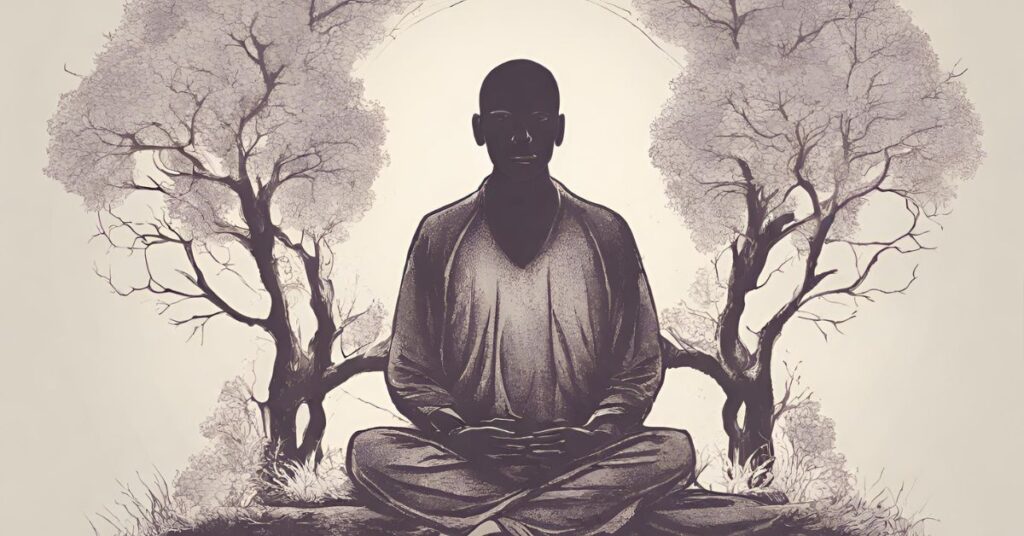
Embarking on a meditation journey is like planting a seed of tranquility in the garden of your mind. But to let it blossom, you’ll need some nurturing habits. Let’s unearth some secrets to help you tend to this budding practice.
1. Craft Your Sanctuary: Dedicate a specific time and cozy corner for your meditation. It could be the soft morning light in your living room or the golden hue at dusk on your balcony.
2. Baby Steps to Mastery: Don’t rush. Begin with fleeting moments of stillness and gradually extend them as your comfort grows. Think of it as tuning a musical instrument – a few minutes at a time until the melody is just right.
3. Companions on the Path: Share your journey. Maybe rope in a friend as your meditation buddy or become part of a group. Their energy can bolster yours, and those shared experiences can be golden threads weaving you all closer.
4. Affirm the Goodness: On days when motivation wanes, remind yourself of the serene moments, the clarity, and the calm that meditation brings. These memories can be the gentle push you need to continue.
5. Mindfulness in Motion: Infuse everyday moments with mindfulness. Whether you’re sipping your morning tea or pausing to feel the sun on your face, these can become mini-meditations, grounding you in the now.
6. The Wandering Mind: If your thoughts sometimes run wild or distractions lure you away, don’t be disheartened. Remember, every master was once a beginner. With dedication, the waves of distraction will begin to ebb.
7. Explore the Landscape: As your practice matures, dip your toes into the vast ocean of meditation styles. Whether it’s the compassionate embrace of loving-kindness meditation or the profound depths of transcendental meditation, find the rhythm that resonates with your soul.
So, as you cultivate this beautiful habit, remember it’s a journey, not a destination. Every moment of mindfulness, every breath, is a step towards a more centered and peaceful you.
Final Thoughts: Embracing Meditation’s Gentle Revolution
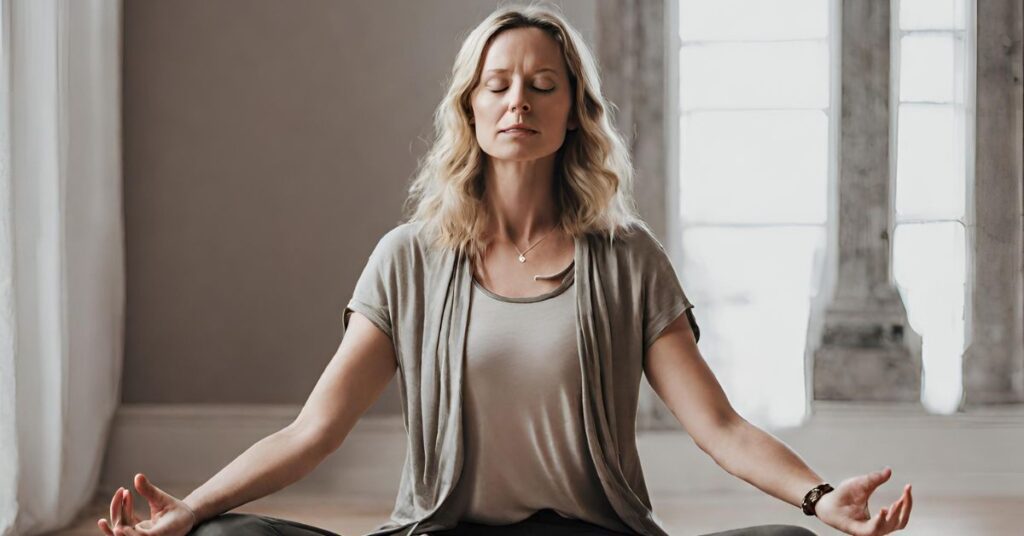
Meditation isn’t just another activity; it’s a gentle revolution for the soul. At its essence, meditation invites us to pause, breathe, and listen to the silent whispers of our inner world. Amid the whirlwind of modern life, with its cacophonies and endless to-do lists, meditation serves as a quiet harbor where serenity reigns.
Starting this practice is akin to setting out on a voyage of self-discovery. You might face waves of doubt or the gusts of restlessness, but remember, every sailor learns by navigating the storms. With each session, you’ll uncover layers of your consciousness, sometimes finding tranquil depths, and other times, insightful revelations.
In a world that seems perpetually in fast-forward, meditation offers a refreshing pause button. It’s that rare oasis where you’re neither racing with the clock nor weighed down by past regrets. Just present, alive, and authentically you.
As you let the essence of meditation seep into the fabric of your days, you’ll notice its subtle, yet transformative power. It’s like a gentle hand guiding you back home to yourself, reminding you of the peace and clarity that’s always been there, waiting to be discovered.
Frequently Asked Questions About How to Meditate for Beginners
1. Why should I meditate?
Meditation offers numerous benefits, such as reducing stress, improving concentration, promoting emotional well-being, enhancing self-awareness, and increasing relaxation.
2. How do I start meditating?
To begin meditating, find a quiet and comfortable space, sit in a relaxed position, close your eyes or focus on a specific object, and slowly direct your attention to your breath or a chosen mantra.
3. How long should I meditate for?
When starting out, aim for 5-10 minutes of meditation per day and gradually increase the duration as you become more comfortable with the practice. Ultimately, it’s up to you to determine how much time feels right for you.
4. Can meditation help with anxiety and stress?
Yes, meditation is known to be an effective tool for managing anxiety and stress. Regular practice can help calm the mind, reduce negative thoughts, and promote overall relaxation.
5. What are some common meditation techniques?
There are various meditation techniques available including mindfulness meditation, loving-kindness meditation, transcendental meditation (TM), guided visualization, and body scan meditation. It’s important to explore different methods to find what works best for you.
6. Do I need any special equipment or accessories to meditate?
No special equipment is needed for meditation. However, some people find it helpful to use cushions or mats to create a comfortable sitting position.
7. Can anyone meditate regardless of religious beliefs?
Absolutely! Meditation is not tied to any specific religion or belief system. It is a universal practice that can benefit people from all walks of life regardless of their spiritual background or lack thereof.









